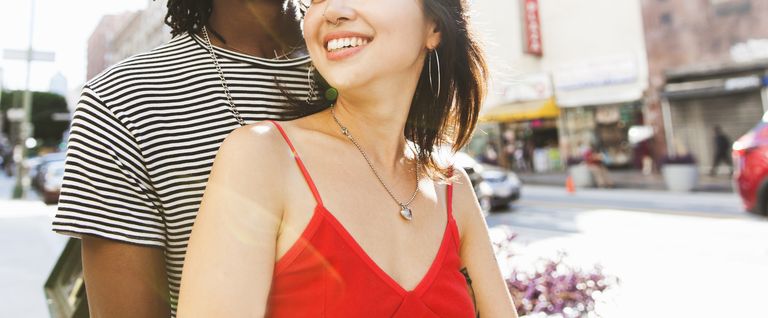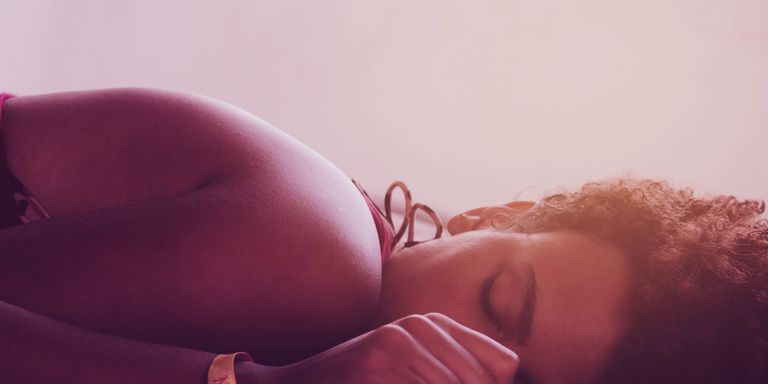Calling a person exotic is rooted in a colonial mindset
New research from Bumble has found that 1 in 3 people have been the victim of racial discrimination, unsolicited fetishisation or microaggressions when dating online. People of mixed race background were most likely (1 in 2) to experience unsolicited fetishisation. And yet, over half (53%) of people in the UK don’t have a clear understanding of what fetishisation is as it relates to identities, race, body type, profession and more.
Georgina Lawton, author of Raceless and a brand ambassador for Bumble, explains what fetishisation is, how it manifests in dating, and what to do if you’re being fetishised on a dating app.
What is fetishisation?
Fetishisation is a sexual fascination with things not inherently sexual, like race, gender, sexuality or body type. Unsolicited fetishisation reduces people to a certain characteristic and can be profoundly dehumanising to those who experience it.
“A woman cannot be exotic”
Fetishisation when dating can manifest in different ways. When someone calls you ‘exotic’, or tells you that they are ‘really into’ Black or brown people or fixates on your non-sexual characteristics in a weird way, that’s fetishising as it reduces entire groups of people to a monolith and often comes from a legacy of racial stereotypes.
These stereotypes have persisted for centuries, since Black and brown people were first colonised and our ‘physical’ was emphasised over our humanity and our intellect, our bodies have long served as a board onto which the white imagination can enact its fantasies. But remember that one person’s ‘exotic’ is another person’s everyday. Calling a person exotic is rooted in a colonial mindset whereby you believe your world-view to be universal and the norm and everything else to be ‘other’.
A woman cannot be exotic, we are not pieces of fruit, we are whole people with a range of thoughts, looks, characteristics and emotions.
Why do women – particularly mixed race women – experience increased fetishisation?
Women are always held to more rigorous standards when it comes to our image, our bodies are policed and monitored in ways that men just aren’t subject to. And in recent years woman have seen the global beauty standard shift from white blonde and waif-like to something darker and curvier, a move that has coincided with a global increase in interracial relationships and a greater focus on racial equality.
But with that has come an obsession with ‘mixedness’ in the media; white influencers tanning their skin and wearing braids with the ‘Blackfishing’ scandal, celebrities augmenting their bodies and faces to attain fuller hips and lips, brands casting ethnically ambiguous models. It’s suddenly cool to flirt with the image of Blackness, without of course, being burdened by the actual reality of being black. Mixed heritage individuals find ourselves at a complex point in history, celebrated for features that we perhaps spent years hating while navigating systems of privilege and discrimination in our own communities.
The emotional impact of fetishisation
Fetishisation and microaggressions can have a severe impact on a person’s mental health leaving you questioning yourself and your character and affecting your confidence. Worrying about how someone will interact with you based on the colour of your skin or your background isn’t a concern any person should have, and being hyper-aware of how you are perceived leaves you unable to feel fully seen and heard in everyday situations such as dating and in the workplace.
How to navigate fetishisation on dating apps
If you’ve experienced fetishisation or microaggressions while using a dating app, it’s important to report it so you can protect yourself and others. Bumble has also made it easy for people to block and report anyone whose behaviour goes against the company’s guidelines – even if it’s just making someone feel uncomfortable. They have a zero tolerance policy towards racism and offensive language and the app also houses a Safety and Wellbeing Centre for more resources on how people should interact with each other online.
It really depends on your level of comfort as to whether you want to respond and engage with someone who has acted inappropriately towards you. If you’re using a dating app, I suggest using the tools they have available, such as Bumble’s block and report system, so that you know they will be dealt with appropriately and removed from the dating app if their behaviour is deemed unacceptable.
“It drags up a lot of painful memories for me” – says Rachel, 27
“I’ve experienced [fetishisation] on dating apps and in real life, but definitely more on apps. I think it’s easier for someone to reduce you to a stereotype when they haven’t met you in person. That idea they can say anything they want with no consequences. If I see it at all it’s usually in the messaging and early dates phase. It’s a real turn off to me so I wouldn’t spend much more time with a person after that.
“It mixes between innocuous and really outright. In the early phases, it’s easy to see when someone’s more interested in my culture than me as a person. Other times it’s been as gross as someone using my race in ‘flirty’ banter. Once a guy called me a ‘race traitor’… funnily enough, not a huge turn on?

“It knocks my confidence, and honestly drags up a lot of painful memories for me of other experiences where people have only seen my race. Feeling that you have been reduced to the colour of your skin or background, rather than someone finding you attractive for your other qualities sometimes feels dehumanising.
“It doesn’t put me off dating, but my experiences have made me want to talk about it a lot more and raise awareness. Most people I’ve spoken to don’t even know what fetishisation is, so it’s important that to protect ourselves, people become educated so they know what is offensive.
“Even though I’m internally fuming about what happened, it’s sometimes really hard to confront it because these issues are linked to a lot of insecurities and personal experiences. I find I have to really work myself up to it! Things like Bumble’s safety features help stop and deal with the behaviour on my behalf. The block and report system means that I can feel confident and safe knowing that someone has faced consequences because of their actions, and that other women are protected.
“Someone’s culture is a big part of their identity, but it’s not the defining part of their personality. Never be afraid to ask questions and learn about their experiences, but remember that they’re so much more than just the colour of their skin.”
